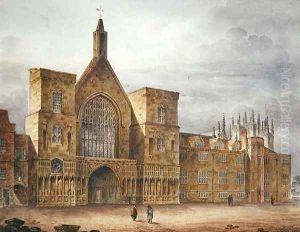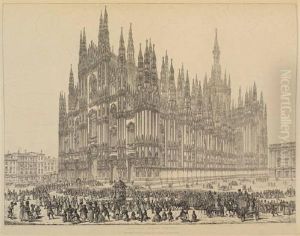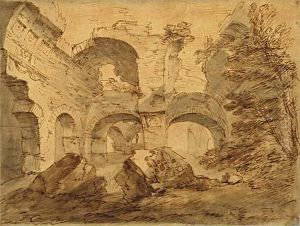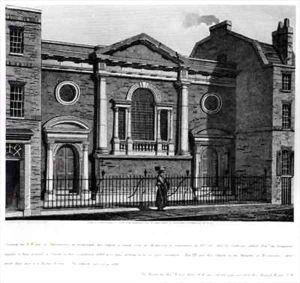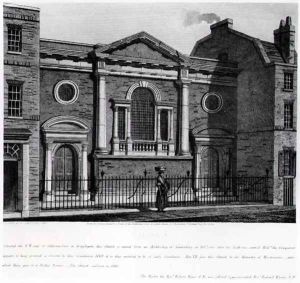John Coney Paintings
John Coney was an American silversmith and engraver, largely considered one of the most important of his trade in colonial America. Born in Boston, Massachusetts, in 1655, Coney was apprenticed at a young age to learn the craft of silversmithing, which was a highly respected and lucrative profession at the time.
During his career, Coney became renowned for his skill and artistry. He was prolific in his output, producing a wide range of silver items including tankards, cups, candlesticks, and ceremonial pieces. His work is characterized by the robust and high-quality design, reflecting the influence of English silver from the same period, yet displaying a distinctive colonial American style.
Coney was also active in public affairs and became a respected member of his community. He held various positions within the local government and was involved in the early monetary affairs of Massachusetts, including the minting of silver coins, which was a significant aspect of the colonial economy.
In addition to his work as a silversmith, Coney was an accomplished engraver, and his services were sought after for engraving printing plates, bookplates, and currency. His craftsmanship in engraving further cemented his reputation as a master of his craft.
John Coney passed away in 1722, leaving behind a legacy that would influence American silversmithing for generations. His work is still highly prized by collectors and can be found in various museums, where it serves as a testament to the skill and artistry of early American silversmiths.
